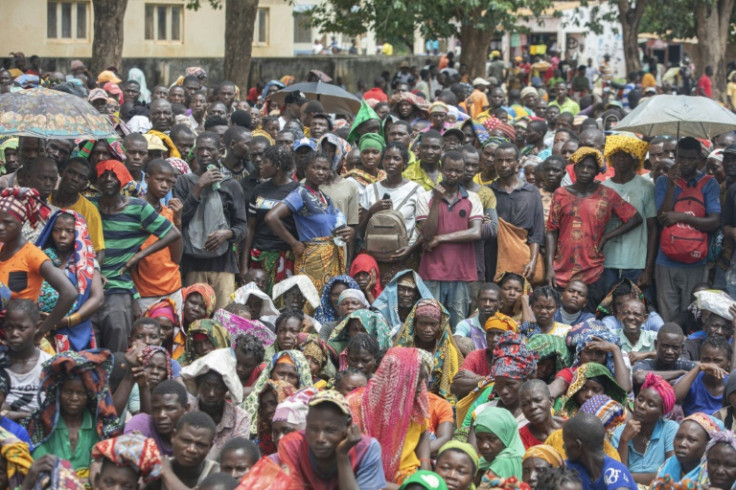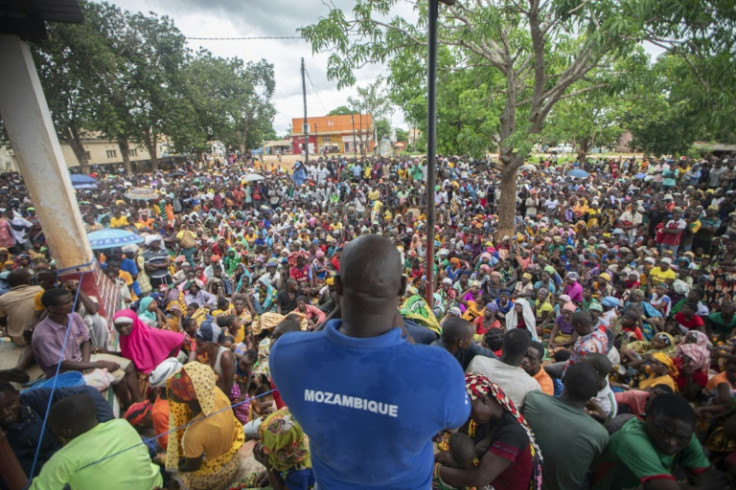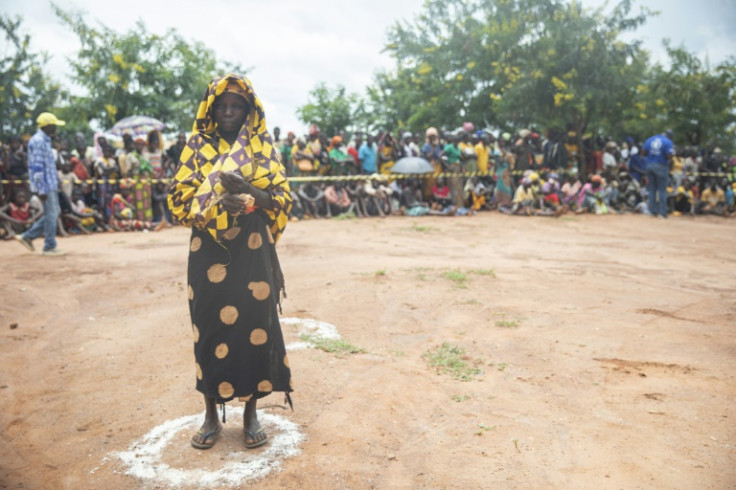
Mozambique's government confirmed Tuesday that tens of thousands have been driven from their homes by a wave of jihadist attacks in the restive north, but rejected calls for a state of emergency.
"We are talking about 67,321 displaced people," government spokesman Filimao Suaze told a press conference in the capital Maputo, describing the situation in Cabo Delgado province.
This figure, he said, "Corresponds to 14,270 families who are therefore considered to have arrived in the province of Nampula and... other places."
But Suaze said the government did not "believe that the conditions for declaring a state of emergency... in Cabo Delgado have yet been created."
Fresh unrest broke out in northern Mozambique two weeks ago, according to local reports and figures for displaced people from the UN migration agency IOM.
"The sounds of gunshots woke us up, they began to chase people, we watched as they cut off the men's heads with machetes, and we ran away with the little we had," Josefina Gabriele told AFP, adding, "those terrorists are evil".
The 40-year-old woman is among the people who fled to the small town of Namapa in the Nampula province, south of Cabo Delgado, a week ago.
Thousands of displaced people walked in the rain, some carrying sacks of clothes and others babies on their backs.
Others stood in demarcated circles on gravel as they waited in line for food parcels distributed by the UN's World Food Programme, an AFP correspondent saw.
The IOM has put the numbers fleeing attacks from Macomia, Chiure, Mecufi, Mocimboa da Praia and Muidumbe at 71,681 between December 22 and February 25.
Between last Wednesday and Thursday alone the IOM recorded over 30,000 displaced people arriving in Namapa town, in the Nampula province, by bus, boat or foot.
Mendes Luciano told AFP of "suffering", adding that they had "not eaten almost anything" since they arrived last week.
"Men arrived with firearms and machetes and came to burn the cars. We were terrified, and on February 20, we fled here" the 23-year-old father of two said.
"The primary needs reported across all hosting districts include food, shelter or non-food items, and health services and support," an IOM spokesperson told AFP.
The insurgency erupted in October 2017 when fighters -- since proclaimed to be affiliated the Islamic State group -- attacked coastal areas in gas-rich northern Cabo Delgado, close to the Tanzanian border.
Since July 2021, thousands of troops from Rwanda and the SADC regional bloc have deployed to shore up the Mozambican military and have since helped retake control of much of Cabo Delgado.
The SADC mission is to come to an end by mid-July, according to the bloc.
But Suaze told reporters he refused "to talk about this, at least for now".
He insisted Mozambique was "doing everything it can" to "fight terrorism and guarantee security for the population at such a level that the fact that a certain force left or another remained is not noteworthy".
"The government is paying attention," he said.
Last week President Filipe Nyusi confirmed new population movements, but played down the threat and insisted security forces had the situation under control.
Almost 5,000 people have been killed and almost a million have been forced to flee their homes since IS-linked militants launched the insurgency.









